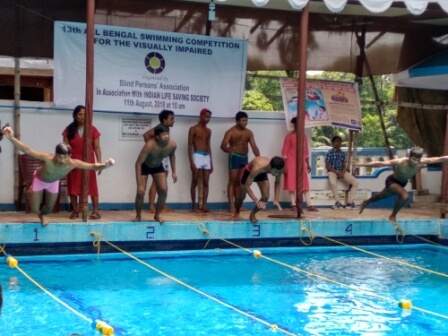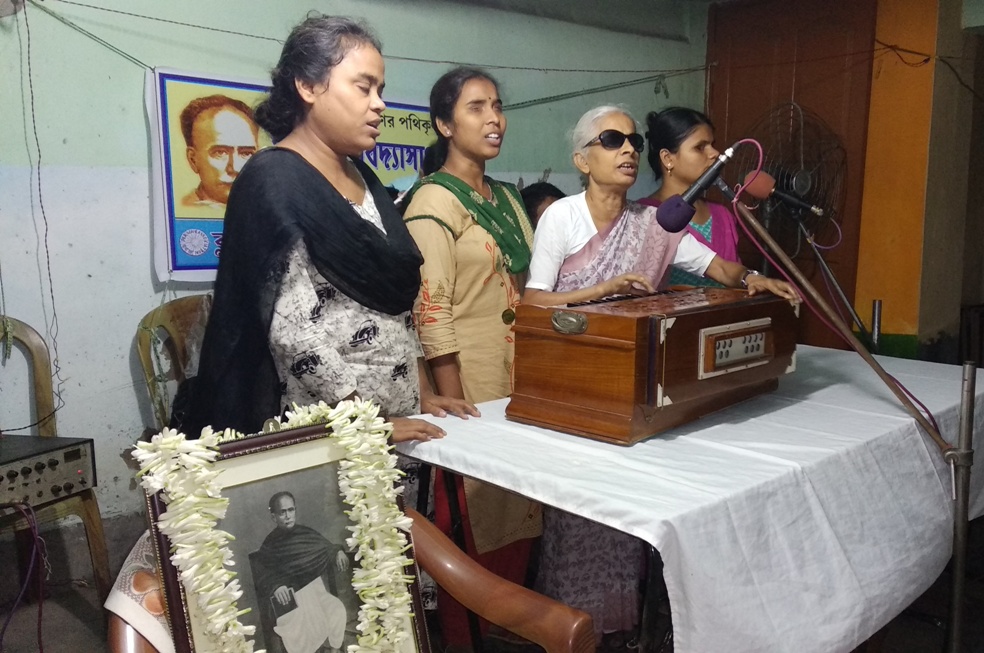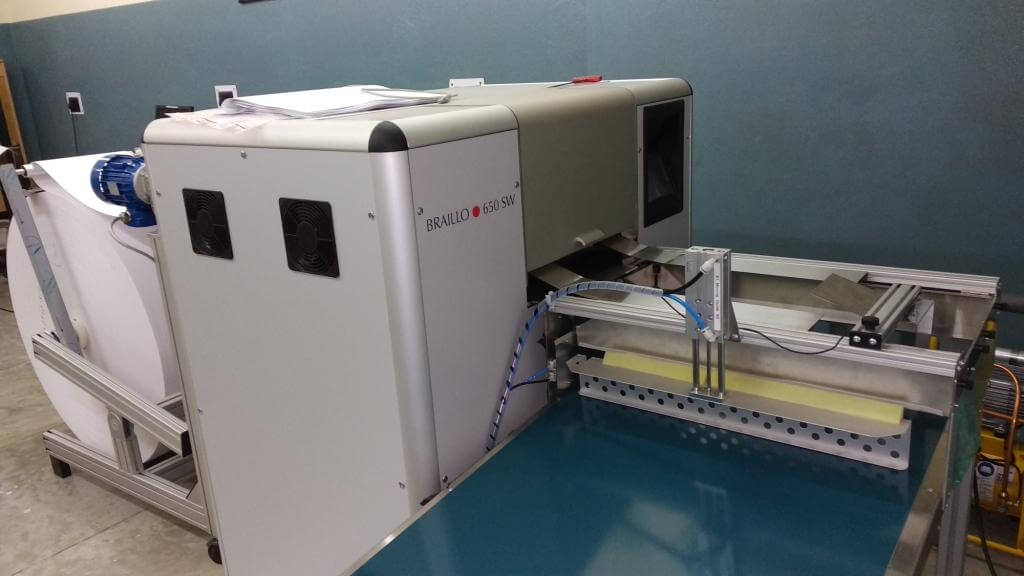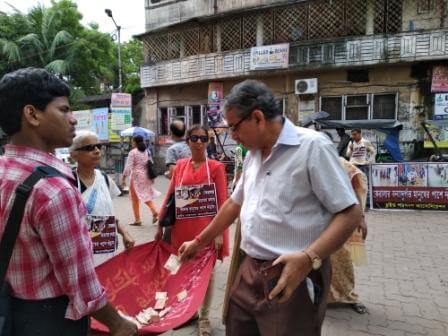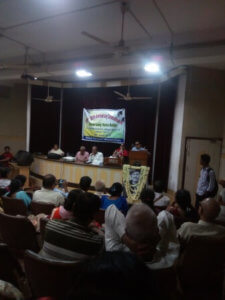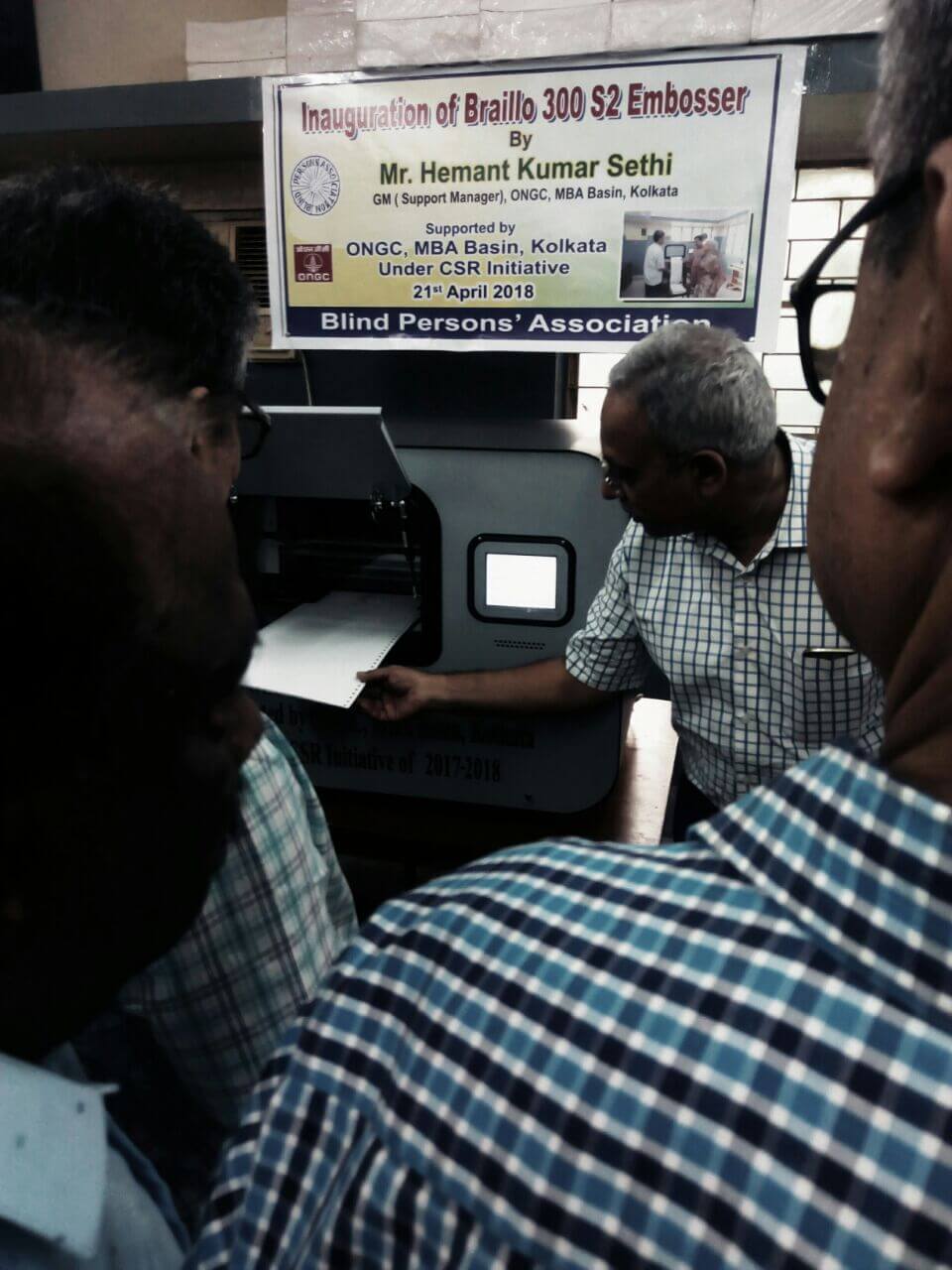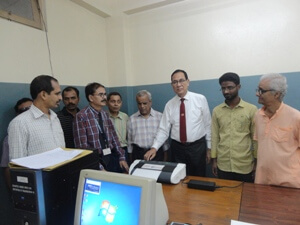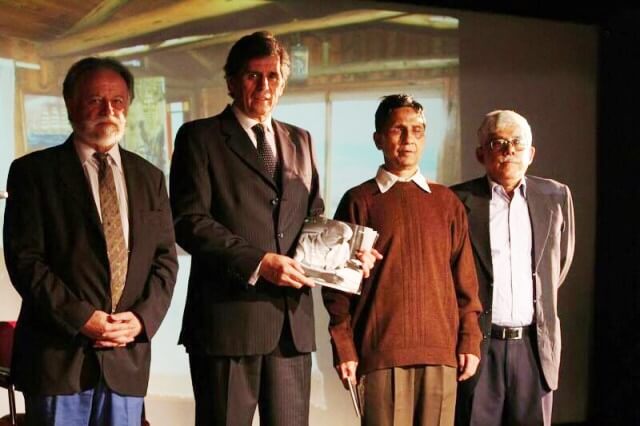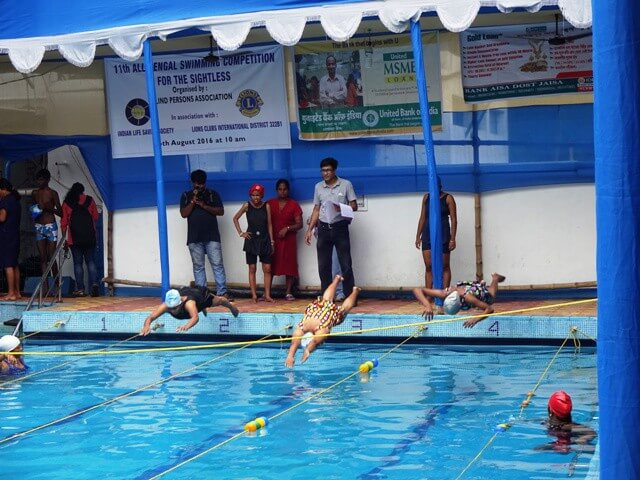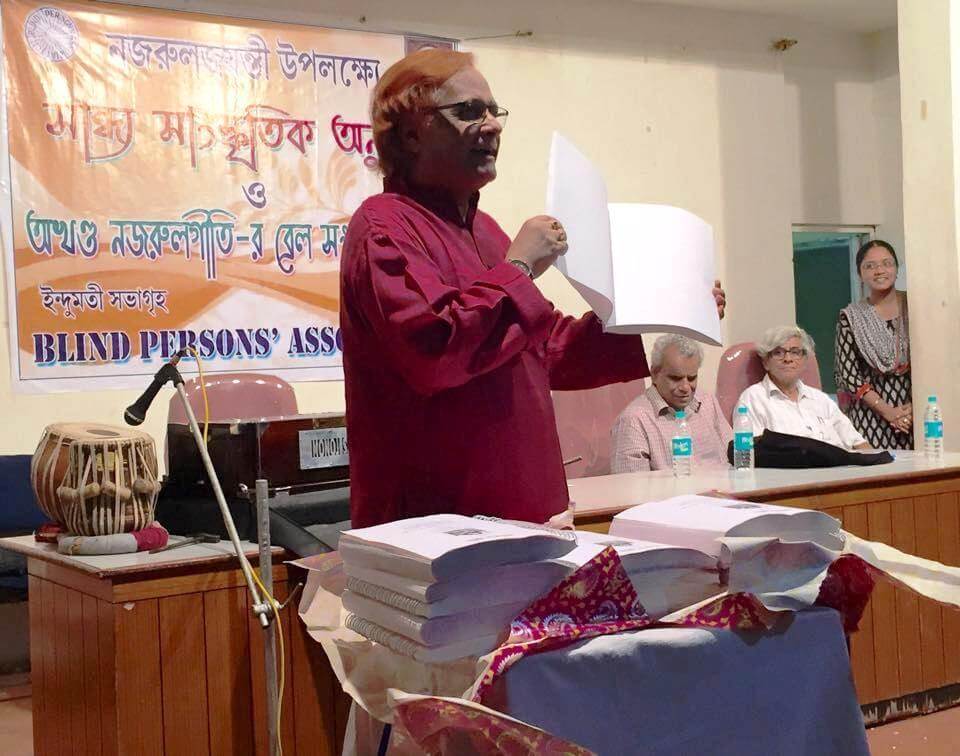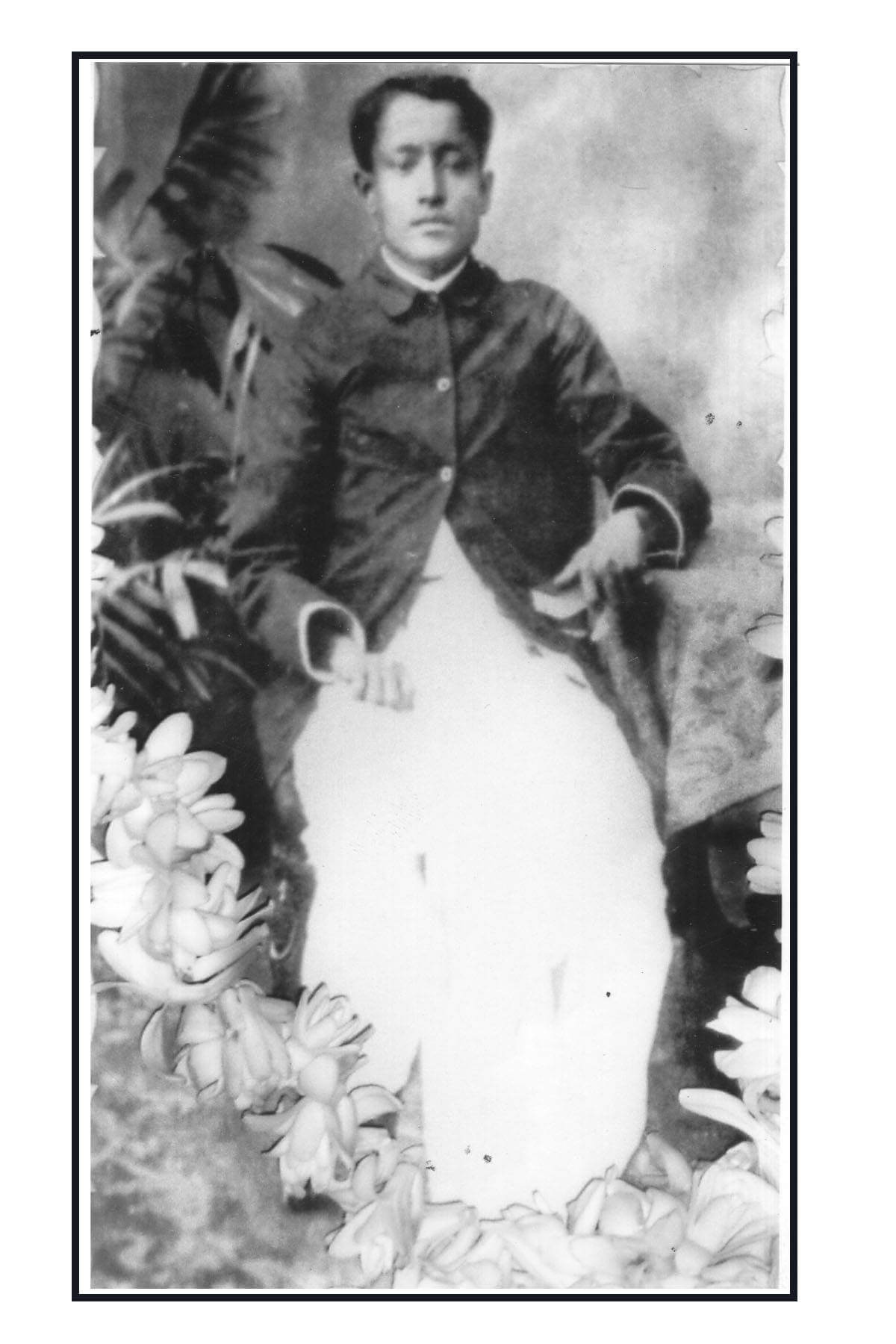The following paper was presented by Shri Narayan Ganguli, an active social worker and former President of Blind Persons’ Association, in the Seminar on “the Role of Integrated and Special Education for Sightless children At the Primary Level” organised at H.L. Roy Memorial Hall, Indian Institute of Chemical Engineering, Jadabpur University, Kolkata on August 19, 2006 by Blind Persons’ Association with the aid of Indian Council of Social Science Research (Eastern Region).
The word “Integration” is derived from its root “Integer” which means an indivisible whole number. So Integration implies the unification of a separated part with the substance or entity it originally belongs to. Thus Integrated Education for the blind means the imparting of education to sightless students within the normal education system.
Lack of sight imposes some limitations on a person in consequence of which he falls behind other sighted people. He cannot participate in the mainstream of the society though he is never actually out of it. The limitations arising out of blindness are, according to Berthold Lowenfeld, “limited mobility, limited information, limited communication and restricted control over environment”. Today, however, it is possible, at least in many respects, to overcome the aforesaid limitations following the advancement of science.
The main objective of the education of the sightless is social integration by overcoming limitations imposed by blindness. Now the question is, what should be the form of education? The history of Special Education for the sightless dates back to the later half of the 18th century Paris. This is also termed as “Residential Education”. The sightless students are educated in a special residential school in this system. This system has certain advantages. Firstly, a sightless child gains confidence when meets other sightless children together. Secondly, it is possible to make arrangements for games and sports for these sightless children in a residential school. Besides, they can more easily attain efficiency in special skills like Braille, mobility and daily living activities. But residential education has some limitations too. Say for instance, these sightless children may suffer from mental anxiety on account of their estrangement from family. Hostel is not desirable even for a normal child unless it is avsolutely necessary. Some sightless children tend to develop abnormal behaviour as they have hardly any scope to interact with the greater society.
The concept of Integrated Education flourished in the West since the 1930’s for these reasons. Both sightless and sighted students study together in the same school in this system. A special teacher or resource teacher takes special care of the sightless students. He addresses their special needs in Braille and mobility skills. A resource room is set up at the school for this purpose.
This system has some varied forms. In one of the forms the sightless students are accommodated in a special residential school for the blind and they attend normal school from its hostel. The primary responsibility for their education rests on the Special School. This form of Integrated Education is termed as “Cooperative Education”.
Another form of Integrated Education currently adopted is “Itinerant Teaching Programme”. An itinerant teacher visits all sightless students of a particular area either at their home or at school and guides them in this form. Some influence of this system is noticeable in the form adopted in West Bengal for the education of all types of handicapped children known as “Inclusive Education”.
Integrated Education to the greatest possible extent should be introduced at least for the sake of social integration of the sightless. A separate arrangement is not desirable for the sightless in any field. A sightless person has to involve himself in the mainstream of the society to become a good citizen. He can accomplish social recognition only when he shares others’ weal and woe. Separate system of education, of course, is a hindrance in the way of attaining this social recognition.
Some special provisions, however, must be made for the sightless that they can overcome the limitations imposed by loss of sight. Special Education is necessary for sightless children at the primary level for realising their limitations and acquiring skills they need in overcoming those limitations. This is why Special School is a necessity at this level. At a later stage they can be successfully taught at normal schools with the aid of these Special Schools.
The system of education the government of West Bengal is trying to introduce for all kinds of handicapped in the name of Inclusive Education within the scheme of Universal Education can never render any benefit to the handicapped children. It is not at all possible for blind, deaf-and-dumb and mentally retarded children to study and play together with normal children in the present situation prevailing at the existing primary schools, especially in the rural areas. The schools are supposed to have a resource room under the system of Integrated Education. Is it not illogical to think of a resource room where many primary schools in the state do not have building of their own? An itinerant teacher is expected to look after the special needs of all sightless students reading in the schools of a particular area. He will try to find volunteers from amongst the guardians and common people. But how far is it realistic for a salaried teacher to ask for voluntary service from others to lighten his burden? It not difficult to imagine the situation in a class of normal and handicapped students where there is only one teacher per eighty students. 80:1 is the average ratio of students and teachers at the primary level in the state. Moreover, the sightless students inevitably grow up with deficiency in Braille, mobility and daily living skills in this system. It is almost impossible for sightless students to participate in games, particularly in outdoor games, in the existing system.
Obviously, there is no alternative to Special Education system for sightless children at the primary level. The appalling effects of Inclusive Education, to whatever extent it has been introduced at the primary level in our state, are already evident. It has not even yielded the desired result in the developed countries with much improved infrastructure.
It is argued that a poor country like ours cannot spend the huge amount of money Special Education demands. Inclusive Education is economically more viable in our country. The answer to this argument is that the proper implementation of Inclusive Education is not likely to be as easy on the pocket as expected. What is the difficulty in spending a meagre portion of the mammoth expenditure incurred in atomic research, launching of rockets, and even in the name of administration?
Another significant point deserves to be mentioned: now it is often claimed that the sightless no longer need to learn Braille system. They can listen and learn. Utilising the tactual capability of a sightless person in learning was the key concern at the early stage of the education of the sightless. Braille is the final outcome of all those efforts. The sightless can not only read, they can write as well armed with the discovery of Braille system. From which noble motive are we denying the importance of Braille after 150 years of its discovery? Can audio method be an alternative for audio-tactile method? It is simply tantamount to going back to the past!
So there cannot be any alternative to Special School for the sightless children at the primary level. But Integrated Education with normal students in normal schools is desirable for the sightless students from the next stage onwards for the sake of their social integration. Special Schools must have their responsibilities in that stage too, especially for providing proper guidance in the disciplines like mathematics, science and so on. The success achieved in implementing this method of education in the blind schools conducted by Blind Persons’ Association deserves special mention here.
I appeal to everybody, sightless and sighted, to take into cognizance the recent inclination towards underestimating the value of Special School in the education of the sightless. It is not an isolated phenomenon. There is a tendency particularly in the developing countries to discourage formal education for the common masses on the pretext of expenses. The governments are no longer setting up schools for ordinary people. Instead they are encouraged to participate in different programmes like universal education, literacy for all and so on. D.P.E.P. is the culmination of this trend. Certain schools are being developed as centres of excellence where the children belonging to a section of the society are educated. The rest of the children will receive education under the new schemes like D.P.E.P. However gorgeous and sonorous they sound, they demand minimum burden on the government exchequer. When the states are reluctant to spend on the education of the general people, can we expect them to meet special demands for proper education of the sightless children?
Narayan Ganguli
